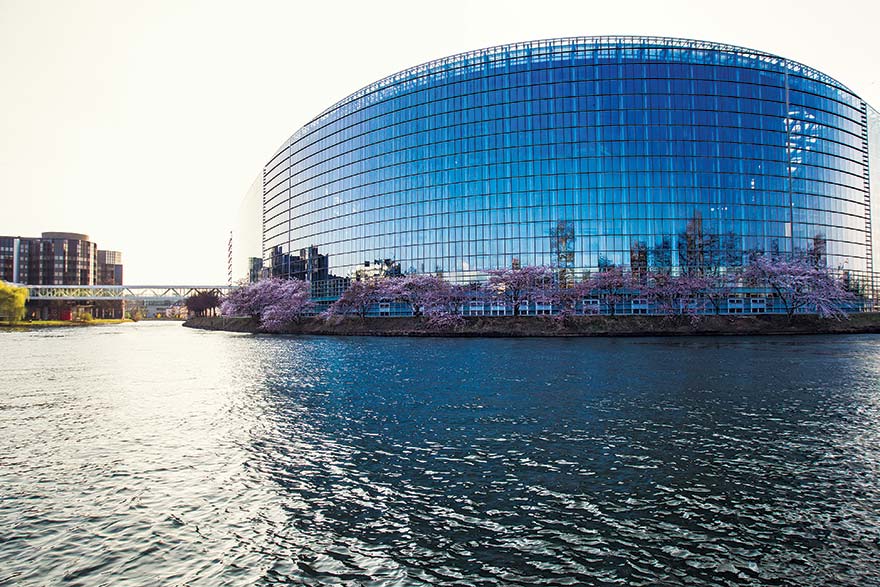The Italian presidency focused on three main themes: recommitting to the Council’s shared principles and values; enhancing women’s empowerment and the rights of children and adolescents; and building a people-centred future
During Italy’s six-month Presidency of the Committee of Ministers of the Council of Europe, from November 2021 to May 2022, the country worked hard to further familiarise the citizens of member states with the values and work of the Council of Europe and strengthen awareness-raising activities targeting schoolchildren and students.
Within the scope of theme one – recommitting to shared principles and values – Italy’s presidency took the opportunity to emphasise the importance of decisive action among governments to finally place equal access to healthcare at the heart of their concerns; to contribute to joint efforts to strengthen the Social Charter by simplifying its monitoring procedures and fostering more regular dialogue with governments, and to set an example on the use of new technologies in the service of knowledge, art and beauty by holding a major event focusing on culture, landscapes and common heritage.
The second theme – enhancing women’s empowerment – was intended to draw attention to increasing instances of domestic violence and gender abuse during lockdown, as well as the declining participation of women in the labour market as a consequence of the Covid-19 pandemic. In that respect, the protection and promotion of women’s fundamental rights were at the core of the Italian presidency’s activities; Italy devoted itself to adding signatures and ratifications to the Istanbul Convention, as the most advanced instrument to fight violence against women and domestic violence at the multilateral level.
Italy was proud that Rome hosted the launch of the new Council of Europe strategy on the rights of children and adolescents
Under the scope of the same theme, the presidency focused on the rights of children and adolescents, promoting youth policies while fighting discrimination. The Italian Presidency pushed to raise the level of protection of minors under the pan- European and international framework through the mainstreaming of minors’ rights in all multilateral cooperation activities, prioritising the eliminating of all forms of violence and abuse against children and adolescents and ensuring that they fully enjoy their fundamental rights.
The Italian Presidency also invited young people from all Council of Europe member States to attend the Forum on Education for Democratic Citizenship and Human Rights, both in person and virtually. This event focused on the five-yearly review of the implementation of the Charter on Education for Democratic Citizenship and Human Rights Education.

When it comes to discrimination, Rome hosted the plenary session of the Steering Committee on Anti- Discrimination, Diversity and Inclusion and the meeting of LGBT focal points.
The third theme – building a people- centred future – focused on the interplay between technologies and science and people’s needs with full respect for their dignity and inalienable rights, with a focus on the development and use of artificial intelligence in the service of human needs and the strengthening of democracy through science.
In addition to all that, Italy also committed itself to reaffirming the function of punishment, both as a means of the rehabilitating of offenders and the recovery of victims. This led to the organising of two high-level events in the justice sector: the Conference of Ministers of Justice on restorative justice and its role in European criminal justice; and the meeting of the General State Prosecutors of the Supreme Courts of the Council of Europe Member States, focused on the independence of prosecution departments.
